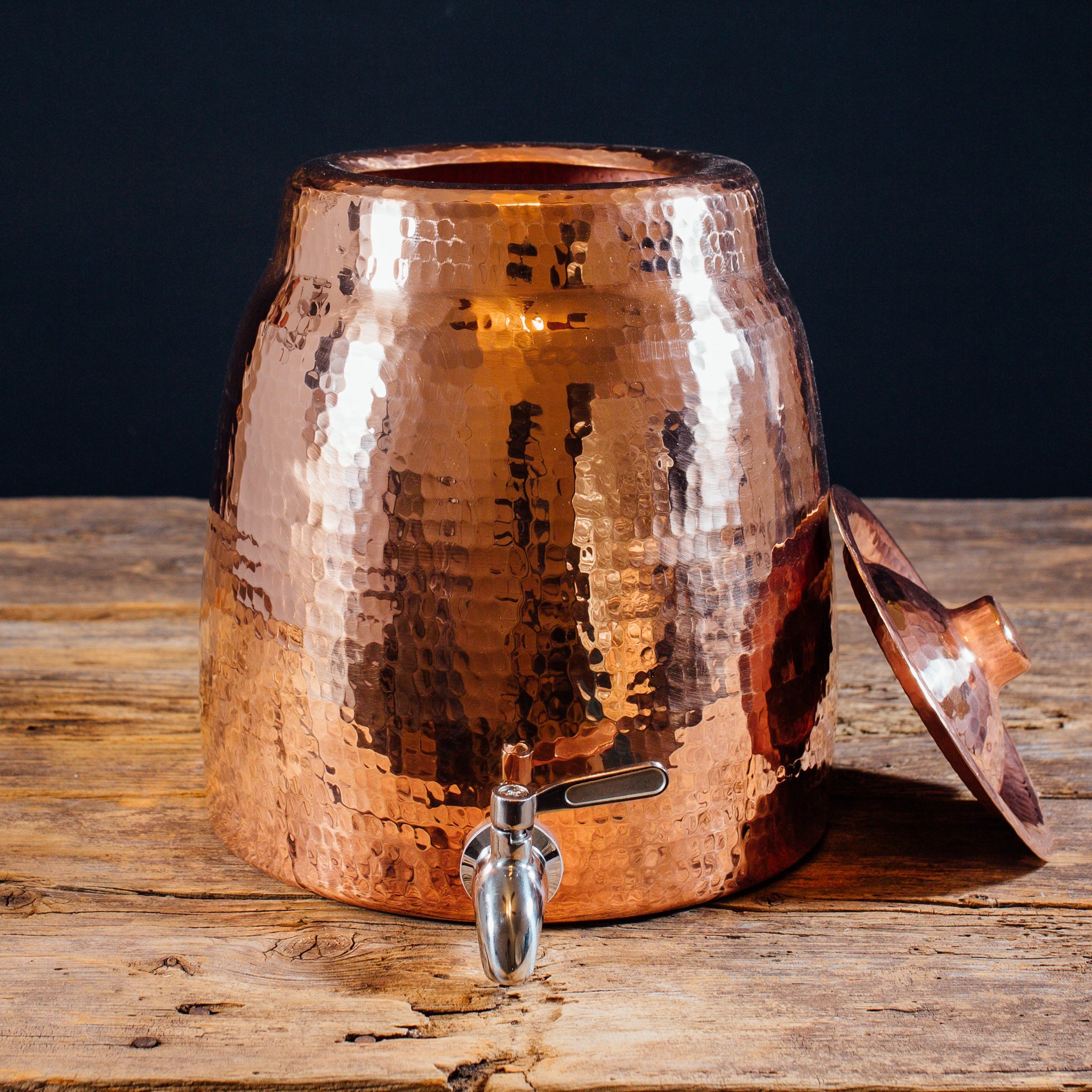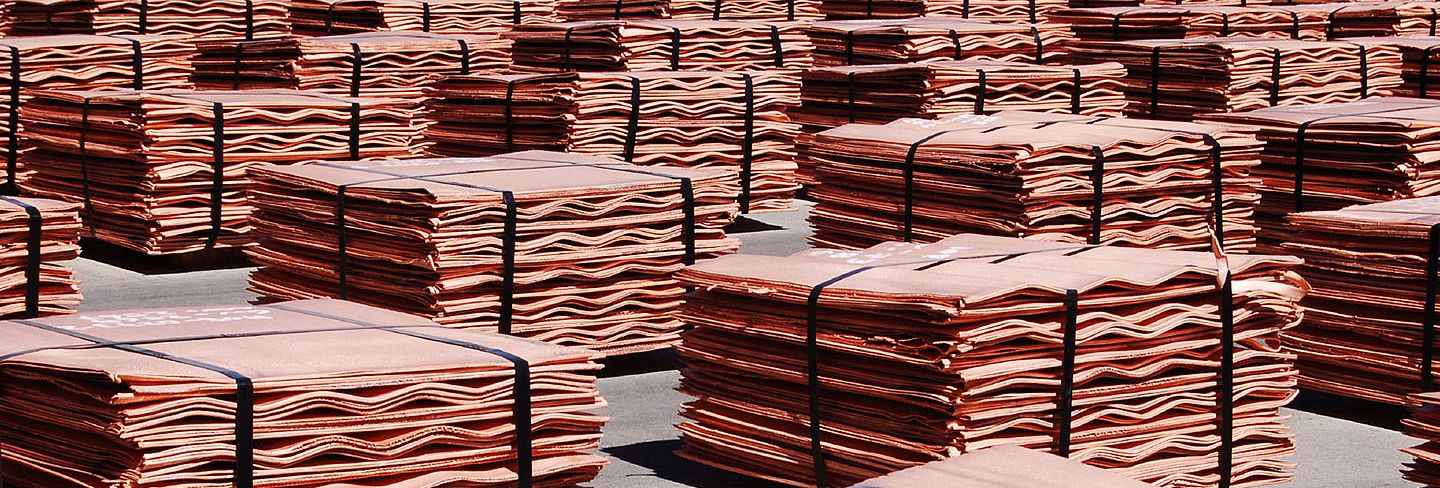Checking Out the Diverse Applications of Copper Products in Modern Industries
From boosting the efficiency of electric systems to playing a critical function in eco-friendly energy innovations, the flexibility of copper is noticeable. As industries progressively focus on development and sustainability, the varied applications of copper necessitate a closer examination, especially regarding their prospective effect on future technical advancements and environmental techniques.
Electric Applications of Copper
Copper is an important material in the electrical industry, making up approximately 60% of the total demand for non-ferrous steels globally - Copper Products. Its superior electric conductivity, which is virtually two times that of aluminum, makes it the preferred choice for a large range of electrical applications. From circuitry systems in business and domestic buildings to high-voltage power transmission lines, copper guarantees efficiency and integrity in electrical energy shipment
Along with wiring, copper is integral to the manufacturing of electrical parts such as transformers, generators, and motors. These components leverage copper's thermal conductivity and malleability, important for warmth dissipation and efficient performance. Copper's resistance to deterioration enhances the life-span and sturdiness of electric systems, making it an economical solution in the lengthy term.
The development of renewable resource sources, such as solar and wind power, has even more boosted the need for copper in electric applications. As sectors change towards lasting power options, copper's duty comes to be a lot more important. On the whole, the versatility and efficiency characteristics of copper solidify its status as a cornerstone material within the electrical sector, driving technology and effectiveness across various applications.
Plumbing and Piping Solutions
In modern-day pipes systems, the selection of products substantially affects both performance and durability. Copper has emerged as a recommended choice because of its distinct residential properties, including deterioration resistance and antimicrobial qualities. These features ensure that copper piping remains risk-free and long lasting for transporting potable water, a crucial consideration in property and business applications.
Among the vital benefits of copper in pipes is its capacity to withstand high temperatures and pressures, making it ideal for a range of applications, from warm water systems to home heating and cooling down networks. Furthermore, copper's adaptability enables easier installation in complex piping layouts, minimizing the risk of leaks and failings.
Another noteworthy advantage is copper's long life-span, often going beyond half a century with proper upkeep. This durability not only reduces replacement prices yet additionally adds to sustainable practices by decreasing waste. Copper's recyclability aligns with modern ecological requirements, promoting a round economic situation within the plumbing industry.
Copper in Renewable Energy
The versatility of copper prolongs beyond plumbing applications, playing a vital duty in the renewable power field. In solar panels, copper is made use of in photovoltaic or pv cells and wiring, assisting in efficient energy conversion and transmission.

Furthermore, as the global need for electrical lorries (EVs) rises, copper's duty in battery systems and charging infrastructure ends up being a lot more significant. The material's capacity to conduct power efficiently is essential to the performance of EV batteries, boosting array and billing speed.
Copper's Duty in Electronic devices
Electronics manufacturing counts greatly on copper's remarkable residential or commercial properties, especially its high electrical conductivity and thermal performance. These attributes make copper a perfect option for a vast array of digital elements, consisting of connectors, circuit boards, and circuitry. The metal's capacity to efficiently transmit electric signals guarantees minimal power loss, which is essential in high-performance digital tools.
In addition, copper's thermal conductivity plays a significant duty in warm dissipation, shielding sensitive parts from overheating. This is especially crucial page in modern electronic devices, where compact styles lead to increased heat generation. Copper is also preferred for its pliability and ductility, enabling it to be quickly formed right into complex designs that satisfy the demands of sophisticated electronic applications.
With the rise of customer electronics, telecoms, and web electric cars, the need for copper in the electronics field remains to expand. As developments in innovation evolve, copper stays integral to accomplishing greater performance and integrity in electronic products. Its recyclability better enhances its appeal, as manufacturers look for lasting solutions without endangering quality. Hence, copper continues to be a cornerstone product in the ever-expanding area of electronic devices.
Cutting-edge Uses in Manufacturing

One remarkable application is in additive manufacturing, where copper-based products are employed in 3D printing processes. This permits for the development of complex geometries and lightweight parts, particularly in the aerospace and vehicle fields. Additionally, copper's thermal conductivity makes it a suitable option for warmth exchangers, improving efficiency in industrial air conditioning systems.
In addition, the rise of smart production has actually seen the incorporation of copper in IoT devices, where its conductive capabilities support advanced picking up modern technologies. In the world of renewable resource, copper is crucial in the manufacturing of solar panels and wind turbines, facilitating a lot more reliable power conversion and circulation.
As sectors pursue sustainability and advancement, copper's flexibility and performance continue to position it as an important product, driving innovations in manufacturing and contributing to the development of smarter, much more efficient products.
Conclusion
In recap, copper items show exceptional adaptability across various modern-day industries. Copper Products. Their superior conductivity boosts electric applications, while rust resistance guarantees reliability in plumbing. The indispensable duty of copper in renewable resource and its vital feature in electronics underscore its importance in progressing sustainable practices. Furthermore, cutting-edge usages in manufacturing emphasize copper's versatility and enduring importance. Jointly, these applications illustrate copper's critical payment to technological progression and commercial efficiency in contemporary culture.
From improving the performance of get more electrical systems to playing a vital role in sustainable power technologies, the convenience of copper is evident. As markets increasingly prioritize development and sustainability, the varied applications of copper warrant a closer evaluation, especially regarding their possible influence on future environmental methods and technological improvements.
The development of eco-friendly power sources, such as solar and wind power, has actually even more enhanced the need for copper in electric applications. On the whole, the versatility and performance attributes of copper solidify its status as a foundation material within the electrical industry, driving innovation and performance throughout various applications.
The flexibility of copper extends past plumbing applications, playing an essential role in the renewable power field.